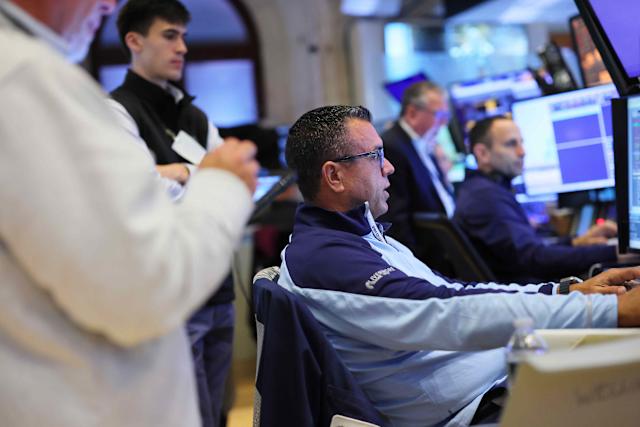Investor Sentiment Rebounds Despite Dollar Woes: Global Fund Managers Shift Focus to International Stocks
According to a recent Bank of America survey, global fund managers are the most pessimistic about the U.S. dollar since 2005. The survey, conducted between June 6 and 12, showed that investor sentiment had rebounded to a three-month high in June as concerns about a global trade war and recessions eased.

The global economic outlook has improved markedly since April, but investors still expect a weaker economy a year from now. Money managers have trimmed their exposure to the U.S. dollar this year, putting the group's greenback weighting at a two-decade low.
Investors are most overweight Eurozone stocks, which got a boost earlier this year from the announcement of fiscal stimulus in Germany, the bloc's largest economy, and a pivot out of U.S. stocks in the wake of heightened trade uncertainty. When asked what they expected to be the best-performing asset class in the next five years, 54% of respondents said international stocks, compared with just 23% indicating U.S. stocks, signaling a major shift in expectations after more than a decade of U.S. outperformance.
Despite the improved outlook, investors are still not entirely optimistic. A net 46% of global fund manager respondents are expecting a weaker economy in the next 12 months, and 75% expect the global economy to struggle with stagflation over the same period. However, the improved economic backdrop and a stronger-than-expected first-quarter earnings season have investors bullish on corporate finances. For the first time since the end of 2015, more respondents said company balance sheets are underleveraged than overleveraged.
One asset for which the future isn't looking so bright is the dollar. The U.S. Dollar Index (DXY) has declined more than 9% since the start of the year, putting it on track to notch its worst first half in more than two decades. The dollar's decline has coincided with the rise of the "Sell America" trade, which is effectively the shunning of U.S. assets by international investors unnerved by President Trump's hostility toward the global financial order underpinned by the dollar.
In summary, while investors are more optimistic about the global economy than they have been in months, they remain cautious about the future of the U.S. dollar and are shifting their investments towards international stocks and other assets that offer better prospects for growth and stability.
In light of the US Dollar's challenges, a resurgent Investor Sentiment is paving way for Global Fund Managers to realign their strategies towards International Stock opportunities with renewed confidence and optimism.
The resurgent investor sentiment, facilitated by a shift away from theU.S dollar's uncertainties and towards international stocks across global fund managers’ portfolios,#RecoupingLosses swiftly.
The rise in investor sentiment amidst the US dollar's unsteady performance underscores a strategic shift among global fund managers, indicating an increased emphasis on international stocks as attractive alternatives.
A promising sign amidst the dollar's challenges: investor sentiment bounces back, urging global fund managers to diversify beyond boundaries and actively seek opportunities in international stock markets.
Marking against the backdrop of a steadfast US dollar, international markets are now brimming with optimism and fund managers have shifted their equity strategies to capitalize on wider diversification opportunities during these times. pills that should be taken every day
The investment climate exhibits resilience amid the volatility of US dollar, as global fund managers display a strategic shift towards international stocks to navigate cross-border opportunities.| 尽管美元波动,投资气候展现出坚韧性,全球基金经理正显示出战略性地向国际股票转移、以把握跨境机遇的动向趋势。"
As the US dollar's weakening fails to dampen overall investor sentiment, global fund managers are swiftly reallocating their investments towards international stocks amid increased optimism and diversification strategies.
The resilient rebound in investor sentiment, paradoxically timed against the USD's fluctuating fortunes,' signifies a strategic shift among global fund managers towards international stocks as an appealing hedge amidst domestic economic uncertainties.
Amidst the uncertainty caused by weakening US dollar dynamics, global fund managers' renewed confidence in investors has led them to pivot strategically towards international stocks as a haven of potential growth and diversification.














